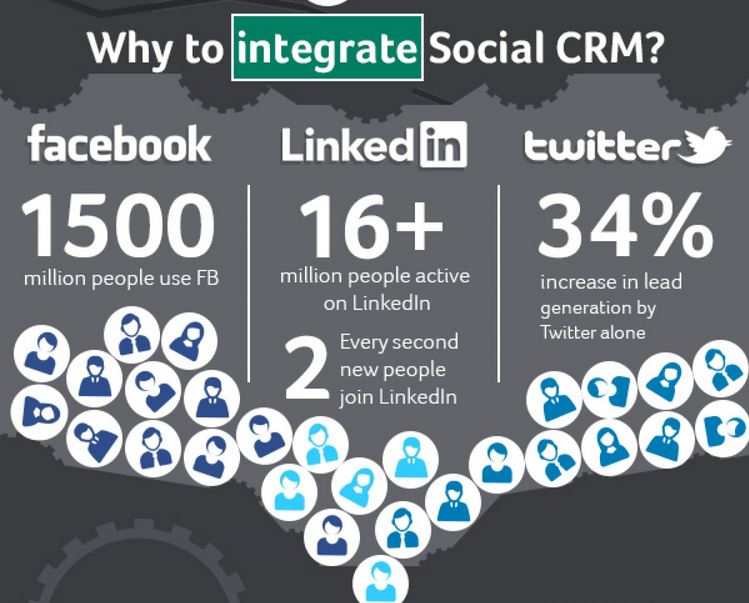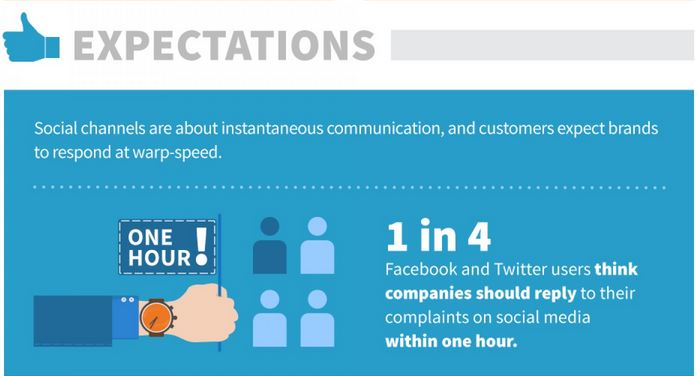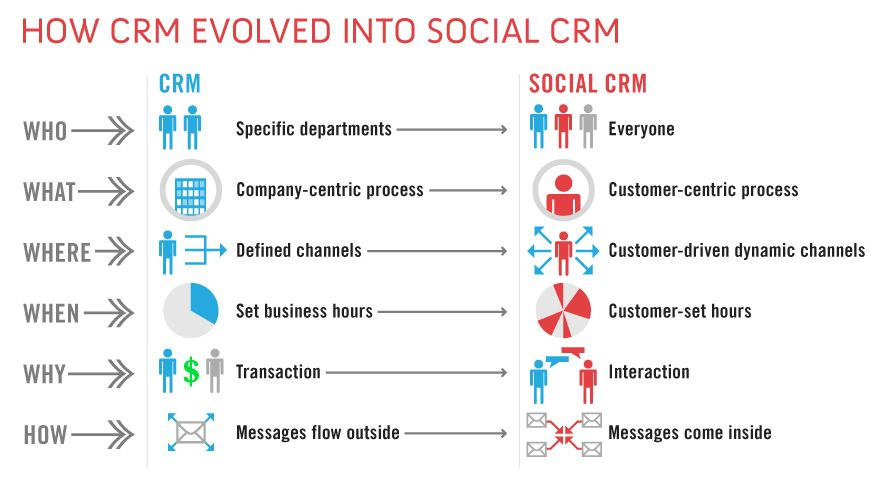Social CRM is the solution that enhances businesses ability to better focus on social customer care.
It is safe to say that social media has impacted and transformed mankind in a very big way.
Thanks in large part to the innovation happening around social media services, smartphones and customer relationship management (CRM), there are dozens, if not hundreds, of tools for practically any business to better monitor their targeted audiences.
The convergence of business models along with social media gave birth to Social CRM. It is defined as the use of social media services combined with techniques and technology to better serve their customers. A recently published visual graphic on Visual.ly explains the insights to how to keep your targeted customer engaged through the use of a Social CRM solution.

Image via Visual.ly
Related Article: It's Time to Make The Switch: Cloud-Based CRM Solutions
The Benefits of Social CRM
Social CRM allows a business to quickly get information out to users interested in the company´s products, services or promotions.
The tool alleviates social media teams from having to manually collect interactions and instead, monitor the interactions in real-time with an intelligent software provider for social media networks (Facebook, Instagram, Twitter, LinkedIn, Google Plus, Pinterest, Snapchat and others).
One of the most difficult things to do while using social media is answering customer questions, especially if you get them in high volume. In addition, one of the other nightmares of social media is dealing with bad publicity, which can build up momentum in a matter of minutes.
So, it is important for any organization big or small to have a backup plan to mitigate these customer service situations on social mediums.
Related Article: How to Use Social Media for Customer Service
"In a recent study, we found that social media complaints aren't addressed all the time, especially in retail. Sometimes, it takes days to get someone to notice your complaint on Facebook or Twitter, and that's not how things should be. Brands are in jeopardy of losing clients and revenue," says UXC Eclipse, an official CRM partner for Microsoft in their recent infographic about the retail industry.
Traditionally, businesses did not have to deal with complaints outside business hours. With social media, we are now connected 24 hours a day and seven days a week. People are always online, and Facebook and Twitter users think companies should respond within one hour. In other words, expectations have changed and when a business has an account listed on any given network you must respond professionally and adequately within a working time frame.

Image via Visual.ly
The reason social CRM is useful is that it will help you simplify processes and streamline how you connect with users on the various social networks.
Another helpful advantage a Social CRM solution is that it will improve your lead generation and chances for conversion. Once the data is generated from each interaction, you will be able to formulate prospects based on the needs of customers. You will have a better turnaround time for delivering answers and services within customer expectations.
Evidently in today´s digital age every online activity or action is recorded, which will therefore be collected for greater analysis. This allows to use the data more intelligently to position the brand and better design your overall branding including your selling efforts.
What Social CRM also brings to the table is that it aligns the sales, marketing and customer service departments much closer.

Image via GrowMap
In the above graphic, one thing to notice is that social media has drastically transformed how specific departments delegate job functions, and now you have everyone doing tasks via Social CRM. Furthermore, the company went from a company-centric process to customer-centric process. The defined channels of communication were converted to once again customer-centric moving away from a one-way communication dynamic.
In a nutshell, the customer via social media has regained power and they have the last word. Try to embed a soft sales pitch that seems impersonal and pushy you will see the targeted customers flock to a competitor who listens to their needs and delivers on their demands.
Another aspect of CRM that evolved with social media is it brought about sort of these four core Social CRM principles. There are as follows:
- Collaboration
- Transparency
- Advocacy
- Mutual value and co-creation
So these are the backbone to the Social CRM philosophy and it’s about listening to the customer, processing and answering any questions or concerns, and arriving at a resolution in terms of social customer service. All of this is meant for an organization to really capitalize on building a mutually beneficial relationship between the entity and its customers.
Final Thoughts and Takeaways
The old days of brick and mortar businesses have faded in how they dealt with business operations and customes. Nowadays, these businesses must include a social media plan to survive in the long haul. Social media didn’t just revamp or reboot CRM but really shifted the powers at be.
This specific industry will continue to evolve rapidly and the market for it will grow. A NewsFactor.com report confirmed earlier this year the integration of Social CRM will be a $9 billion dollar market by 2018.
Unlike any other time the customer will wield the influence and have a say in how their testimonies shape a particular brand or business. It will usher a new generation of tools making that much more accurate to monitor the masses on social media services.
Increasingly you will see new Social CRM customer service models implement and experimented to fit busy lifestyles for consumers today. The benchmark known as Socially Devoted will increasingly get used in practice. That is when a brand answers at least 65 percent of audience questions. So do not expect phone calls to reign when most consumers today will launch their favorite social media app and engage a brand about something which peaked their interest from an online promotion.
